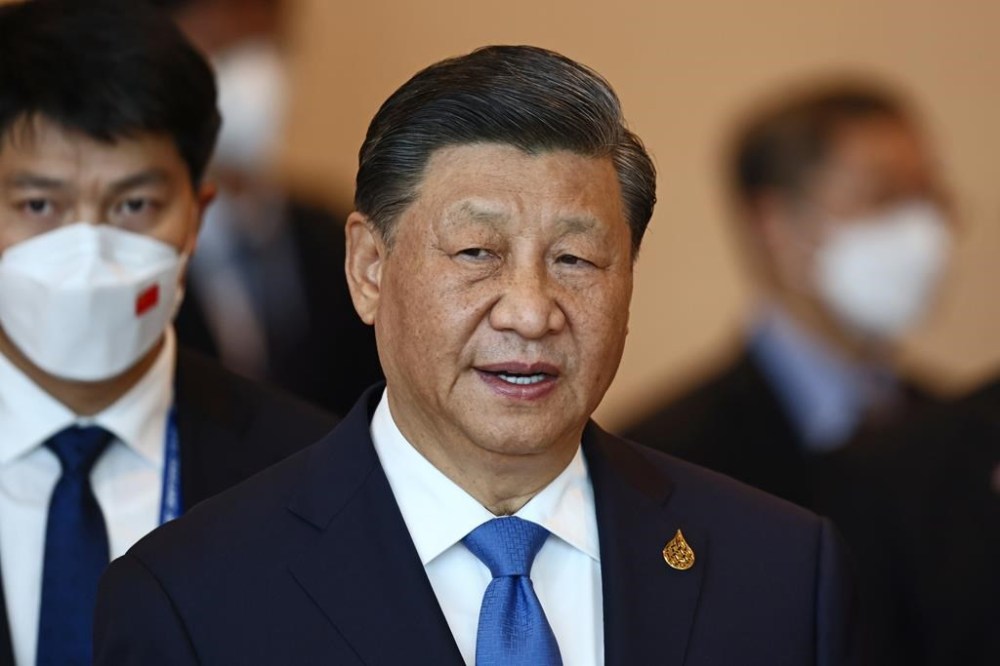China’s Xi pledges support for Cuba on ‘core interests’
Advertisement
Read this article for free:
or
Already have an account? Log in here »
To continue reading, please subscribe:
Monthly Digital Subscription
$0 for the first 4 weeks*
- Enjoy unlimited reading on winnipegfreepress.com
- Read the E-Edition, our digital replica newspaper
- Access News Break, our award-winning app
- Play interactive puzzles
*No charge for 4 weeks then price increases to the regular rate of $19.95 plus GST every four weeks. Offer available to new and qualified returning subscribers only. Cancel any time.
Monthly Digital Subscription
$4.99/week*
- Enjoy unlimited reading on winnipegfreepress.com
- Read the E-Edition, our digital replica newspaper
- Access News Break, our award-winning app
- Play interactive puzzles
*Billed as $19.95 plus GST every four weeks. Cancel any time.
To continue reading, please subscribe:
Add Free Press access to your Brandon Sun subscription for only an additional
$1 for the first 4 weeks*
*Your next subscription payment will increase by $1.00 and you will be charged $16.99 plus GST for four weeks. After four weeks, your payment will increase to $23.99 plus GST every four weeks.
Read unlimited articles for free today:
or
Already have an account? Log in here »
Hey there, time traveller!
This article was published 25/11/2022 (1141 days ago), so information in it may no longer be current.
BEIJING (AP) — Chinese President Xi Jinping and his Cuban counterpart pledged mutual support over their fellow communist states’ “core interests” Friday at a meeting further hailing a return to face-to-face diplomacy by Beijing.
In comments to Miguel Diaz-Canel Bermudez, Xi said China hoped to “strengthen coordination and cooperation in international and regional affairs” with Cuba. The two will “go hand in hand down the road of building socialism with each’s own characteristics,” Xi was quoted as saying in a Chinese government news release.
China generally defines core interests as the defense of its economic and political development aims, along with control over territory it claims, especially self-governing Taiwan.

No specific issues or other countries were mentioned in the Chinese government news release.
Diaz-Canel’s visit is a further sign of how China is trying to jump-start its in-person diplomacy after a virtual shutdown of such exchanges during the pandemic.
Xi, who is also the leader of the ruling Communist Party and has eliminated term limits to allow him to remain in power indefinitely, met with German Chancellor Olaf Scholz earlier this month in Beijing, then attended the meeting of the Group of 20 leading economies in Indonesia and the Asia Pacific Economic Cooperation forum in Thailand.
Mongolian President Ukhnaagiin Khurelsukh and European Council President Charles Michel are due to travel to Beijing next week.
Diaz-Canel arrived in China after a visit to Moscow, where he and Russian President Vladimir Putin hailed the “traditional friendship” between their sanctions-hit nations.
Following the collapse of the Soviet Union, China and Cuba grew closer, just as China and Russia gradually established warmer ties, largely in opposition to the U.S.-led liberal democratic global order.

In the Chinese news release, Diaz-Canel was quoted as saying his visit “shows that we attach great importance and attention to the friendly and cooperative relationship between Cuba and China.”
Cuba “highly recognizes” Xi’s practical and theoretical contributions “and we believe this is a real encouragement to all progressive forces in the world,” he said.
China is Cuba’s second-largest trading partner after key oil producer Colombia, and has provided buses, locomotives and other equipment for the island’s drive to upgrade its decrepit infrastructure. Chinese firms have also invested in mineral extraction in Cuba but on a limited scale.

